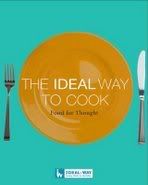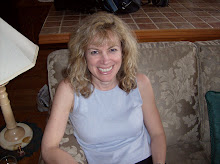When my daughter was born, I wept uncontrollably. Joy rolled down my cheeks in salty rivulets. I thanked God. I thanked the nurses. I thanked anyone who might have had a hand in giving me a baby girl.
Except for the nursing, which was excruciating (she couldn't maintain a latch and my breasts would ooze blood and pus), Stephanie was a perfect angel. She slept all day and all night. She slept through feedings and nothing woke her. None of the tricks - undressing her, dipping her hands and feet in water - would rouse her.
Although I had nursed two babies, I went to
La Leche League meetings to see if the experts could offer me any advice. I would come home from those meetings and tell my mom that Stephanie wasn't like the other babies. They were all smiling and touching things and making gurgling noises and sitting up on their own. Stephanie slumped in my arms like a silent and broken koala, gaze unfocused, mouth slack, arms hanging limply at her sides.
Every fibre in my body told me that something was seriously wrong with my beautiful baby.
Stephanie missed all of her milestones. In spite of my concerns, the doctor insisted that nothing was wrong; that kids develop at different rates; that what I read in the books was meant to be a guideline only. But I wasn't a neophyte.
In desperation, I went to my public health nurse and requested a well baby check. I returned to my GP (the doctor who had delivered Stephanie) and took a different tack. Stephie's shins were terribly twisted and I told the GP that I wanted to see the 'travelling pediatrician' who came to our small valley town once a month regarding my daughter's legs. She finally agreed.
And then all hell broke loose.
The public health nurse, not surprisingly, found that Stephanie was significantly delayed in every area. The pediatrician took one look at my six-month-old baby and set off alarm bells I hadn't even imagined. She filled the examination room with words like 'spina bifida' and 'cerebral palsy.' She made an emergency referral to the
Children's Hospital of Eastern Ontario (CHEO), which would soon become my second home.
What ensued was a whirlwind of medical tests and appointments that yielded few answers. What we did find out was that Stephanie had severe
tibial torsion. An orthopedic surgeon put a cast on her tiny right leg. Months later she would graduate to Dennis Brown boots, adjustable leather shoes with a metal bar between them that she would wear to bed for the next year.
Stephanie did not sit up. Her tiny hands would open and close, open and close when she saw a toy, but her arm did not move. She did not seem to recognize me. She did not play peek-a-boo. She did not wave bye-bye. She did not speak. What she did do was cry, inconsolably, for 23 hours a day. Between 3 a.m. and 3:30 a.m. I could slide down onto a couch with her on my tummy for blessed sleep. No one could make her stop.
My husband threw himself into work. My parents came to visit from Toronto once a month. The rest of the time I was alone with my wailing baby and two little boys.
I came close to losing my mind. One night, with Stephanie in my lap screaming, I beat myself with my fists until I was black and blue. I was prescribed an anti-depressant. It helped. So did the visits from Faye, Stephie's developmental worker. Between the two, they kept me sane.
Shephie lifted her head off the floor when she was nine months old. She began rocking on her hands and knees a few months later. When she started to crawl, she stopped crying. Looking back, I think it was pure frustration at being able to do nothing. The will was there, the cognitive ability was not.
For Christmas that year, the only gift my dad wanted was for Stephie to walk. On December 24, she took her first tentative steps. She was sixteen months old. She was our Christmas miracle.
In January she stopped trying. We noticed new things. Her head would suddenly fall forward while she was putting blocks into a bowl. Her legs would buckle beneath her when she stood at the couch. Her hand went back and forth to her mouth in a strange and repetitive gesture.
We went to see the neurologist at CHEO and she booked Stephie for a raft of tests. EEG,
evoked potentials, MRI.
The EEG, said Dr. Whiting, was one of the best they had ever seen. I was elated. She rephrased. The most conclusive - and one of the worst - they had ever seen. Stephie was having a seizure every 10 seconds. This helped to explain her developmental delay.
Dr. Whiting used an analogy to describe Stephie's condition. Imagine you are driving in the car and listening to a ball game. You are waiting for the score. Just as the announcer starts to speak, you drive under a bridge. He gives the vital statistic, but you don't hear it. This was happening to Stephanie six times a minute. How could she possibly learn? She was missing too much information.
We tried every possible seizure medication. Stephie loved to watch 'Fish TV' - goldfish swimming in a tank in the dining room. We named the fish after her medications: Clobizam, Frizium. We were down to our last fish - Depakene - when Stephie's seizures finally stopped.
She started walking again shortly after her second birthday. She learned her first word. "I-oh." The name of our cat, Lion. Faye and I rejoiced together. Sephie still didn't seem to recognize me, but she knew that cat. And she looked for him. It was huge. She worked her fingers in his hair. He was the perfect therapy.
But I wanted more. Physio. OT. Speech.
Sensory Integration. Anything I could get my hands on. I travelled the hour to the Children's Treatment Centre several times a week, often falling asleep at the wheel of my car from stress and exhaustion. I was obsessed.
And not only with Stephie's development, but also with the cause of her undiagnosed disability. (70% of kids with developmental delay - or 'mental retardation' as one doctor arcanely put it, causing my jaw to drop - are never lucky enough to receive a label.)
We had our well water tested. It came back with a higher than acceptable concentration of lead. There was a pulp mill across the river. I was convinced that this had damaged my daughter's brain.
Dr. Whiting sat me down in her office and gave me the best advice I have ever received. She told me I could either focus on a law suit or focus on Stephanie. I wouldn't have time to do both. As for therapy, the best thing that I could do for Stephanie was to love her.
And that's what I did. I stopped sweating the details and I loved my daughter. Fiercely.
I am not an overly religious person but I made a deal with God. If he let Stephanie live, I would cope with anything else.
Thus ended the darkest period in my life. And when I opened the curtains and let the sun spill into the room, I realized that my daughter was a miracle. She was a gift that had been given to me to treasure; a special child who would never cease to delight; a beautiful soul overflowing with wonder.
I threw away all of my road maps. I no longer worried about where we were going and when we were going to get there. I took hold of my daughter's hand and together we set about enjoying the journey.
 This post written by Janette Hajjar, Robert Pio Hajjar's mother. Excerpt from "The IDEAL WAY to Cook: Food for Thought".
This post written by Janette Hajjar, Robert Pio Hajjar's mother. Excerpt from "The IDEAL WAY to Cook: Food for Thought".
















































